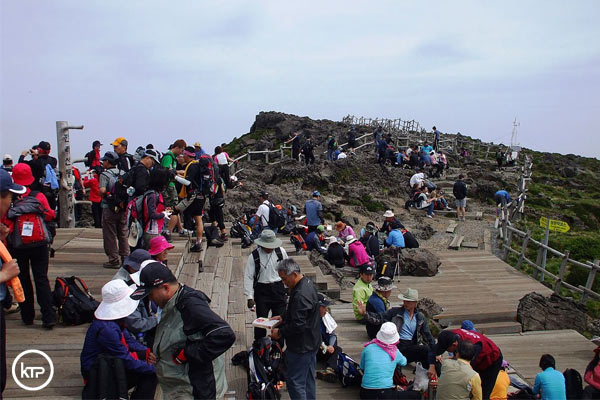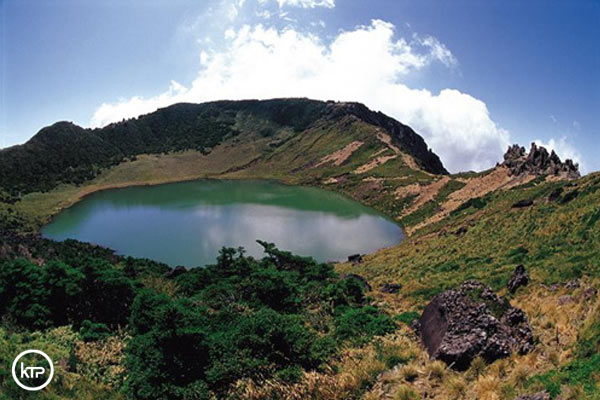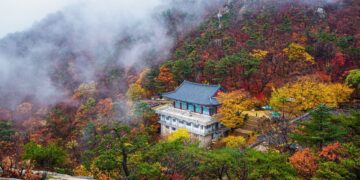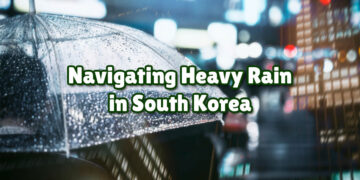Exciting for your upcoming trip to Jeju? Sunbathing on the beach and hiking on the trails of the Hallasan Mountain in Jeju Island. Truly exhilarating, isn’t it? Yet, Hold your horses. There is an imminent danger of severe pollution lurking beneath the serene beauty of Hallasan National Park. And who knows? You might have played a part in worsening this issue if you’ve been to the park before, especially when you consumed some broth-based ramen during your trip. Yet, it is always your choice to be part of the problem or the solution. So, what happened to Hallasan National Park and how does this ramen broth have anything to do with the pollution? How could a simple cup of noodles become an environmental villain? Join us in a comprehensive report below with a complete guide on how to cope with the situation.
The Rising Ramen Broth Pollution at National Park of Hallasan Mountain, Jeju
The pristine beauty of Hallasan Mountain in Jeju, South Korea, is under threat. And the culprit is something most wouldn’t expect: ramen broth. A favorite snack among hikers, the instant noodle’s leftover broth is causing environmental pollution at Hallasan National Park.
On March 30, a post on Hallasan National Park official IG gained attention for raising the pollution issue. As the popularity of outdoor activities increases, so does the amount of ramen broth left behind. This seemingly small act has significant implications for the mountain’s ecosystem. Experts warn that the salty liquid can harm soil and waterways, threatening local wildlife. The park’s initial efforts to manage waste proved insufficient, leading to further measures.

What Happens When You Throw Away Ramen Broth at Hallasan Mountain, Jeju?
Imagine you’re trekking up the majestic Hallasan Mountain, Jeju, and you decide to enjoy a quick, steamy bowl of ramen amidst nature’s grandeur. Yet, here’s a twist in the tale: that seemingly harmless act of tossing your leftover ramen broth into the nearby stream can trigger a cascade of environmental distresses.
You see, ramen broth is loaded with salt, and when it mingles with the pristine waters of Hallasan Mountain’s valleys, it creates a no-go zone for the delicate aquatic insects that call these streams home. These tiny critters, like the nymphs of mayflies and dragonflies, as well as the unique Jeju salamanders, find themselves in a salty soup they just cannot survive in.
Not only that but the scent of this salty broth doesn’t just disrupt the micro world; it invites larger creatures too. Big-beaked crows, curious badgers, and even weasels are lured by the aroma, feasting on the contaminated remnants, and stirring up the ecological balance. And worse, the very soil that nurtures Halla Mountain’s special flora starts to wither, poisoned by the salt, threatening the survival of these endemic plants.

Battling Pollution with “Do NOT Leave Your Ramen Broth Behind” Campaign by Hallasan National Park
Due to the growing popularity of outdoor activities and how much ramen broth discarded, Hallasan National Park is now battling against the contamination caused by discarded ramen broth.
Therefore, to address this pollution issue, Hallasan National Park recently launched the “Don’t Leave Ramen Broth Behind” campaign. By encouraging hikers to use less broth powder, the park aims to reduce liquid waste.
The park office has highlighted the dangers of ramen broth pollution, including its potential to harm larvae, snails, and larger animals attracted by discarded food. This disruption to the natural habitat underscores the need for responsible hiking practices.
Still, this initiative has sparked debate among the public about the effectiveness of such measures. That is because the issue does not only lie on merely the ramen broth, but the whole portable meals as an issue. That is why, to reduce the pollution in Hallasan National Park or Hallasan Mountain entirely, the public believes that banning portable meals will be more effective.
Be Part of the Solution: Tips for Eco-Friendly Hiking at Hallasan Mountain
So, with this rising awareness in the ramen broth pollution at the National Park of Hallasan Mountain, Jeju, do you want to be part of the problem? Or are you interested in becoming part of the solution instead?
If you want to take part in relieving the suffering of these animals and eco-system of Hallasan Mountain, there are several tips you can adopt during your trip:
- Pack Light, Pack Right: Choose snacks with minimal waste. Consider alternatives to instant noodles that don’t leave behind harmful residues. Better yet, cook your own meal with natural ingredients that are eco-friendly.
- Leave No Trace: Always carry out what you carry in. If you bring food, ensure you also take away any leftovers or packaging.
- Use Less, Waste Less: If you must have your ramen, mix less broth powder to minimize liquid waste. Then, if you insist on consuming this broth-based ramen, then bring that leftover ramen broth with you so you can discard them properly later. This simple step can significantly reduce your environmental impact.
- Be Informed: Stay updated on park regulations and participate in conservation efforts. Awareness is the first step to change.
- Spread the Word: Share your eco-friendly hiking practices with others. Social media can be a powerful tool in promoting environmental responsibility.
Your Thoughts?
Finally, now that we’ve journeyed through the unexpected environmental saga of Hallasan Mountain, the question remains: what role will you play in this story? Will you rise to the challenge and adopt eco-friendly practices on your next adventure? Or will the tale of Hallasan’s ramen broth pollution end with you?
After all, as we navigate the challenges of preserving natural wonders like Hallasan Mountain, it’s always the small action that counts. Don’t you think so too? Share your thoughts, plans, and any innovative ideas you have to combat this issue with us. Together, let’s ensure the preservation of our planet’s natural wonders for generations to come. Your move—how will you make a difference?
Related Posts
5,025 total views, 2 views today

















